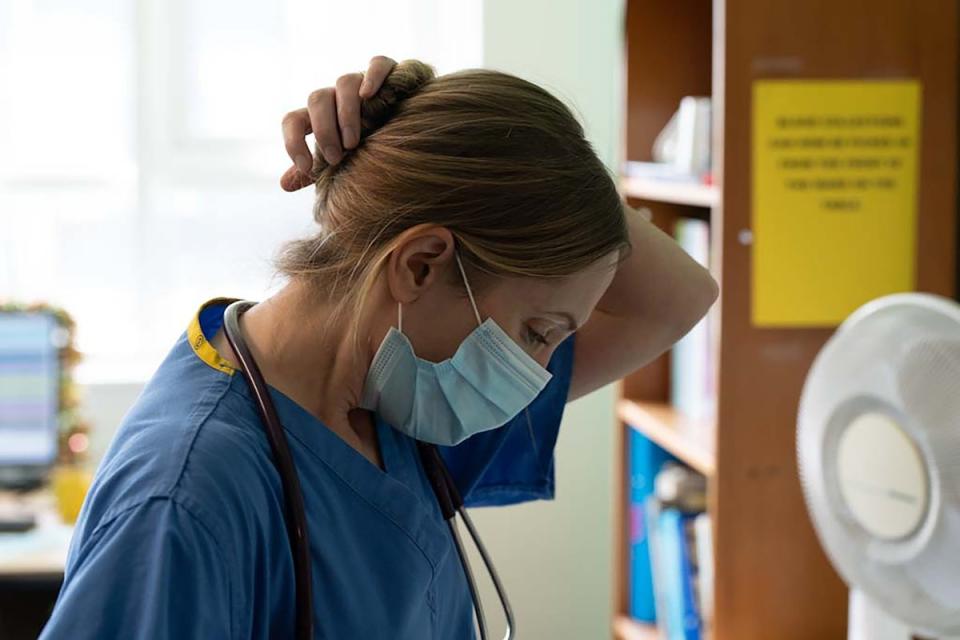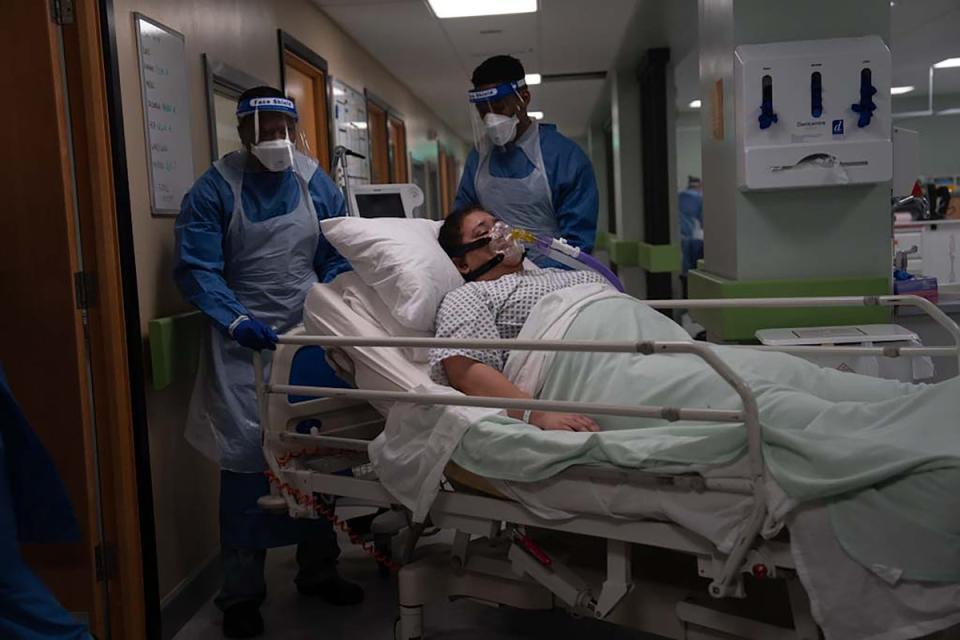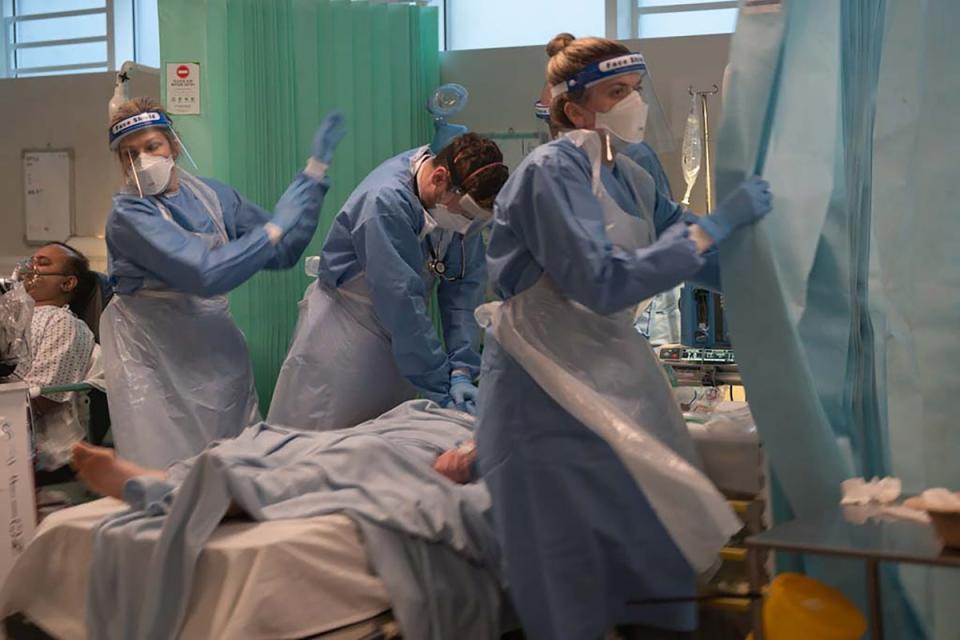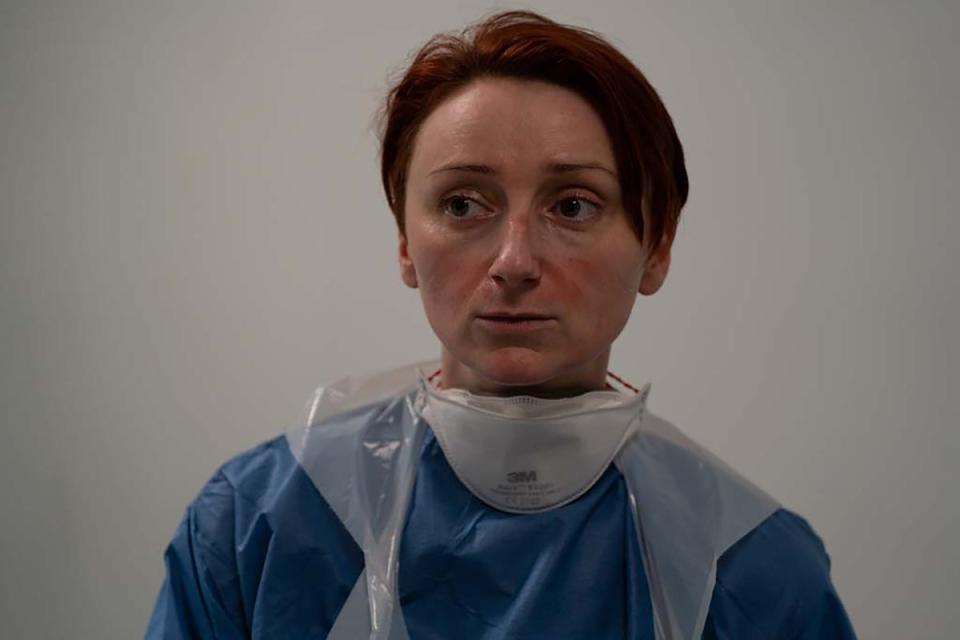Breathtaking: how much of ITV's devastating new Covid-19 drama is true?
Hot on the heels of lightning rod drama Mr Bates vs The Post Office, ITV is getting ready to release another massive drama: Breathtaking.
Set in the wards of a London hospital during the start of the Covid-19 crisis, it follows Abbey Henderson (Joanne Froggatt), a doctor who finds herself and her team battling a disease unlike everything they’ve ever seen before.
Though many of the show’s most shocking moments will already be familiar to viewers – releasing elderly patients to care homes without Covid tests, for instance – Breathtaking also examines some things that might make for unwelcome new information.
Drawing from real life experience

Appropriately for a show all about doctors, Breathtaking was actually written by three of them: Jed Mercurio (yes, the man behind Line of Duty), Prasanna Puwanarajah and Rachel Clarke. Clarke still works as a doctor today, while Mercurio and Puwanarajah have both since left the profession (though both volunteered to come back and help during the pandemic).
The show itself is adapted from her novel Breathtaking, which detailed Clarke’s experience (and the experience of others) of working in the UK’s hospitals during the Covid-19 outbreak.
According to Clarke, she went into the writers’ room with one goal in mind. “Everything that the public is going to see on screen, it has to be true, it has to have happened in some shape or form, to a real patient, to a real doctor, to a real nurse,” she says.
“We will disguise it; there will be composite cases. But it has to be true, so that the public can trust us. And they can know that every single scene that they watch has unfolded for real inside those closed hospital doors.”
That includes inserting real-life new clips of Boris Johnson, Matt Hancock et al into the show: “I guess we wanted to always be reflecting the story that all of us knew already, which is essentially from our locked down TV screens: it was those press conferences,” Puwanarajah says.
“So we wanted the drama of the inside story, the bit that we don't know, to constantly be referencing the stuff that we do know, so that we could really allow those two strands [to] just show the divergence between what was actually happening, and what we were being told.”
Having to look after colleagues

Many of those scenes are harrowing. One of Breathtaking’s saddest moments is when Abbey’s colleague Divina gets sick as a result of her work – and ends up in intensive care herself.
According to Clarke, this was not uncommon: many NHS staff become seriously sick, and some died, as a result of contracting the virus in hospitals.
“Every single person I know in the health service, that works in a hospital intensive care… has ended up caring for at least one, probably multiple, members of staff who we are pretty certain caught their Covid while at work in the same environments we were working in, and then subsequently were cared for by their colleagues until they died,” she said.
“And of course, that is just the most harrowing thing to go through. And it feels it feels so wrong, that the person who is dying in your intensive care is dying because of the choices they made to try and stop other people dying. They chose to go to work and put themselves in the line of fire.”
Death over Facetime
Over the course of Breathtaking, we see doctors calling the relatives of people who are dying on the wards, either to tell them that their loved ones aren’t going to pull through, or that they’ve already died.
That, according to Clarke, was just the tip of the iceberg. “The tragedy of Covid was that it wrenched people apart at the one moment they needed to be close,” she said. “For example, in the hospital car park, every day when I went in, you would see a handful of cars, parked sitting with somebody in the front seat, just staring motionless out of the windscreen at the hospital.”
“They were relatives and they had literally physically got as close as they possibly could to their loved one who was on the other side, and maybe I would see them that day as they died. So everybody inside the hospital had this extraordinary weight of responsibility.”
That involved connecting people to their loved ones via phone calls, iPads or video messages. “We had to be their proxy... we had to hold the patients, so they were not alone at the end of life,” she said: something that took a huge emotional toll on the staff.
PPE Shortages

One thing that quickly becomes clear at the start of the crisis is how little PPE there was for the people working on the hospital wards. In Breathtaking, Dr Ant Vyas (Bhav Joshi) raids the storage facilities in search of facemasks when a supervisor tells him he isn’t allowed any, while the nurses try and make themselves makeshift PPE from binbags.
According to Clarke, it’s true – and what’s worse is seeing politicians claiming it isn’t.
“What is intolerable is having to turn on your television and hear Matt Hancock or Boris Johnson or Jenny Harries from Public Health England, stating categorically that there were no problems with PPE, when every single person who works in Covid knows that's a downright lie,” Clarke says.
“And that those narratives are still now being repeated to the actual National Covid Inquiry just takes my breath away… how dare a politician acclaim the NHS as heroes on the one hand because it makes they think it might make them popular in the public to do so, while simultaneously lying about the fact that NHS and care workers have died because they didn't have proper PPE.”
“Be honest with the population, because you don't get through a pandemic as individuals, you get through it together collectively. You have to trust each other. You have to trust the government that's leading you. And you can't do that if the government's lying.”
Mental health

As the Covid outbreak progresses, the staff on the palliative care ward start to suffer serious mental health problems of their own. Jules (Jodie McNee) breaks down in tears as she talks about her nightmares, while Ant has a panic attack on the stairwell on the way home from work.
“We found the inhumanity of the dying almost unbearable,” Clarke said. “To this day, if I ask any colleagues what their Covid experience was like, almost without exception, within a minute or two they start to cry.
“And this will be a grizzled A&E doctor, or someone who has worked on ICU for 20 years and they’re hard as nails. The trauma that exists today, four years since the pandemic started, amongst NHS staff is astonishing.”
Breathtaking is streaming now on ITVX

 Yahoo News
Yahoo News 
